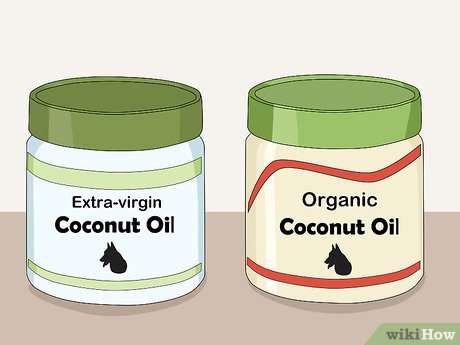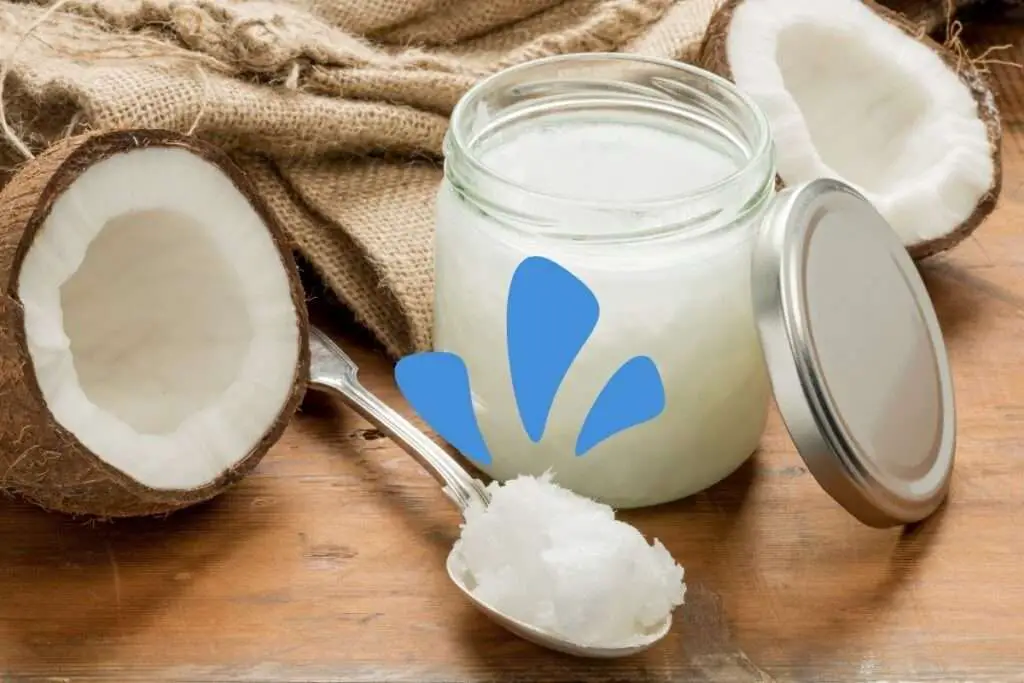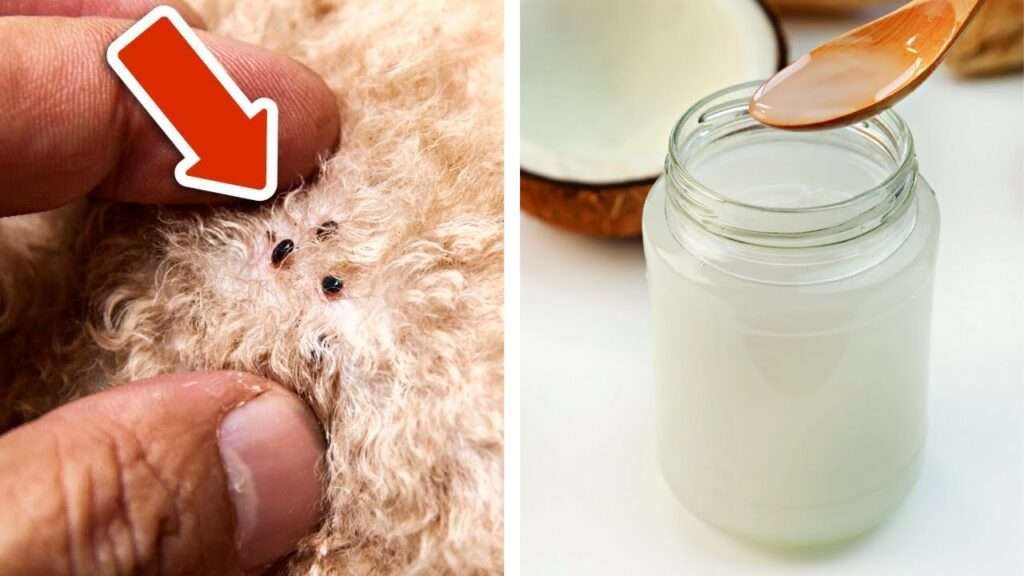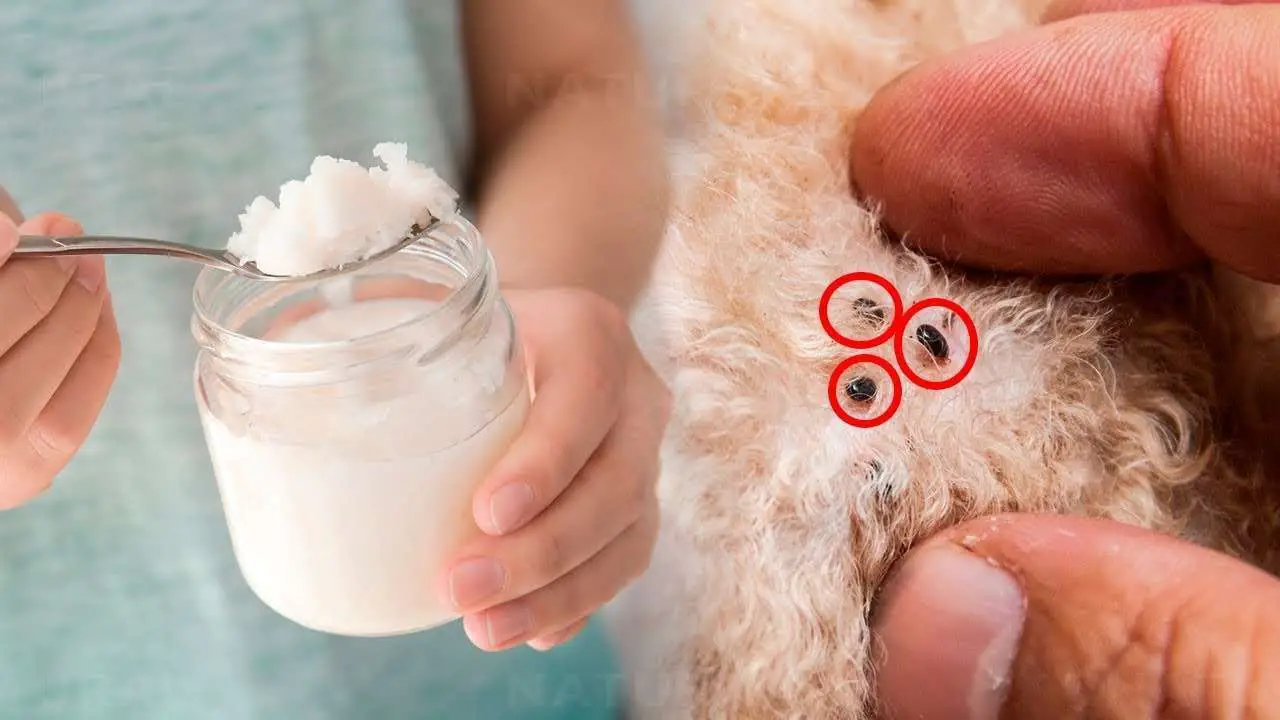Does Coconut Oil Kill Fleas?
Does coconut oil kill fleas? Coconut oil can help repel fleas but does not typically kill them. It suffocates adult fleas when applied directly and thoroughly.
Coconut oil has become a popular natural remedy in the fight against fleas on pets, thanks to its lauric acid content. It coats the exoskeleton of these pests, which can deter them from latching onto your pet. Many pet owners are turning to coconut oil as a chemical-free option in their pet care arsenal.
The substance is praised not only for its potential to repel fleas but also to improve skin and coat health when used topically. Before incorporating this method, consulting with a veterinarian can ensure safety for your pet and effectiveness in your specific situation. Remember, though, a comprehensive flea control plan might include more than just natural oils.
The Flea Menace: A Brief Introduction
Imagine a tiny, persistent pest wreaking havoc on your pet and home. This is the harsh reality of a flea infestation. Fleas are small, agile, and terribly itchy for your furry friends. But are they simple to eradicate?
In this section, we delve into the life cycle of these persistent pests and assess the risks they impose. We’ll also explore whether coconut oil is a formidable opponent in the battle against fleas. Let’s unravel the truth behind flea control with insights and easy-to-understand facts.
Life Cycle Of Fleas
Understanding the enemy’s lifecycle is vital in defeating it. Fleas evolve through four stages.
- Egg: After a feast on blood, the female lays eggs on the host.
- Larva: Hatched eggs release larvae that shy away from light, burrowing in carpets or cracks.
- Pupa: Larvae spin cocoons, entering the pupa stage. They can stay dormant here, waiting for a host.
- Adult: Once it detects warmth and vibration, the adult emerges, ready to start the cycle again.
Risks Posed By Flea Infestations
Flea infestations carry more than just itchiness. They bring various risks that demand attention.
For pets, fleas can cause:
- Allergic reactions leading to dermatitis
- Intense scratching and hair loss
- Potential for tapeworm infections
For humans, the risks include:
- Itchy, painful bites typically around ankles and feet
- Secondary skin infections from scratching
- Severe reactions for those with flea allergies
This overview establishes a foundation for our exploration of natural remedies like coconut oil. Stay tuned as we examine if this tropical oil can indeed become a trustworthy ally in the combat against the flea menace.
Coconut Oil: The Natural Alternative
With many pet owners seeking natural ways to care for their furry friends, coconut oil has risen as a popular flea-repellent solution. Nature’s gift, coconut oil, offers a chemical-free approach to fighting flea infestations. Let’s explore more about this natural alternative.
Composition Of Coconut Oil
At the core of coconut oil’s flea-fighting power is its composition. This oil is rich in fatty acids with capric acid and lauric acid being the key components that make it a formidable enemy against fleas.
- Fatty acids disrupt the life cycle of pests.
- Lauric acid is known to repel fleas naturally.
- Safe for both topical application and consumption by pets.
Popularity In Home Remedies
Coconut oil’s popularity in home remedies has soared due to its versatility and safety. It’s not only used for healthy skin and coats but also for warding off pesky fleas. People love using coconut oil as it’s:

| Why People Choose Coconut Oil |
|---|
| 100% natural and non-toxic |
| Cost-effective compared to commercial products |
| Easy to find in stores |
| Simple to use directly on pets |
| Gentle on pet’s skin |
Proponents of coconut oil for pets frequently share success stories online. These stories help others discover and trust coconut oil as a flea treatment. To sum it up, it’s beloved for its natural, safe, and convenient qualities in pet care.
Effectiveness Of Coconut Oil Against Fleas
Wondering about coconut oil’s effectiveness against fleas? People often seek natural remedies to tackle these pesky parasites. Coconut oil may offer a solution, with its properties being scrutinized for repelling fleas effectively.
Studies On Coconut Oil As An Insect Repellent
Scientific inquiries shed light on coconut oil’s insect-repelling qualities. Lauric acid, a key component, has been identified as the main agent warding off fleas.
- Findings suggest lauric acid disrupts flea habitats.
- Research indicates a strong repelling effect on different insects.
- Coconut oil might serve as a safe, chemical-free repellent.
However, it’s important to note that not all studies are conclusive. Further research is needed to fully establish effectiveness and safety for pets.
Real-life Applications And Anecdotes
Many pet owners share positive stories about coconut oil. They often apply a thin layer of oil to their pet’s coat.
- A gentle massage spreads the oil, covering the fur.
- Parents notice a reduction in fleas on their pets.
- Some report improved skin health and a shiny coat.
Despite these accounts, individual results can vary. Pet owners should consult a vet before trying new treatments. Personal experiences highlight potential benefits but do not replace professional advice.
Utilizing Coconut Oil to Combat Fleas
Wondering if coconut oil is the secret to keeping your furry friends flea-free? Let’s dive into how you can use this natural remedy for flea control on your pets.
Direct Application Methods
Applying coconut oil directly to your pet’s skin can work wonders in fighting off fleas. The oil’s lauric acid content acts as a natural repellent.
- Start by using a modest quantity of coconut oil.
- Gently rub the oil into your pet’s coat and skin.
- Pay attention to spots where fleas tend to seek refuge.
- Performing this procedure once or twice weekly will yield optimal outcomes.
Creating A Coconut Oil-based Flea Repellent
For a homemade flea repellent, combine coconut oil with soothing essential oils. Oils like lavender or peppermint not only smell great but also boost flea-fighting properties.
| Ingredient | Amount |
|---|---|
| Coconut oil | 1/2 cup |
| Lavender essential oil | 10 drops |
| Peppermint essential oil | 10 drops |
- Melt the coconut oil in a jar.
- Add the essential oils and mix well.
- Let it cool before applying to your pet.
Safety And Considerations
Using coconut oil to combat fleas sounds like a natural and gentle alternative to harsh chemicals. But it’s important to keep in mind safety and considerations for your pets and your home. Let’s dive into what you should know before trying coconut oil as a flea treatment.
Potential Side Effects For Pets
Coconut oil is generally safe for pets, but it’s not right for all. Always test a small area on your pet’s skin first. Look out for these:
- Allergic reactions
- Skin irritation
- Gastrointestinal upset if ingested
Consult your vet before starting treatment. Watch for changes in your pet’s behavior or health.
Precautions For Use In Home Environments
When using coconut oil at home, keep these precautions in mind:
- Apply with care, avoiding floors or surfaces where it may cause slips.
- Avoid overuse, as excess oil can stain fabrics and attract dirt.
- Consider your pet’s habits, such as licking surfaces treated with coconut oil.
- Store coconut oil out of reach to prevent accidental ingestion.
A clean environment is key to keeping fleas at bay. Always clean areas where pets sleep and play.

Comparing Coconut Oil To Traditional Flea Treatments
Comparing Coconut Oil to Traditional Flea Treatments becomes essential when exploring options for keeping our furry friends free from itchy invaders. With a myriad of options available at every pet store, understanding the difference between chemical and natural treatments is vital. Let’s dive into how coconut oil measures up!
Chemical Vs. Natural Flea Control Methods
| Chemical Methods | Natural Methods (Coconut Oil) |
|---|---|
| Fast-acting insecticides | Gentle on the skin |
| Potential side effects | Eco-friendly |
| Professional vet recommendation | Easy DIY application |
Chemical flea treatments are often more immediate but come with the risk of side effects. Coconut oil, as a natural alternative, is gentle and eco-friendly but requires consistent application.
Pros And Cons Of Coconut Oil In Flea Management
- Pros:
- Non-toxic to pets
- Moisturizes skin and coat
- Safe for home use
- Affordable and readily available
- Cons:
- May not kill all life stages of fleas
- Requires regular reapplication
- Can be messy to apply
- Not scientifically proven as effective
Using coconut oil can be a safer option for your pets and family. It may not kill fleas as quickly but supports skin health. It’s cost-effective and easy to find. Yet, diligence is key as it’s less potent against fleas.

Frequently Asked Questions On Does Coconut Oil Kill Fleas?
Can Coconut Oil Effectively Eliminate Fleas?
Coconut oil may help in managing flea infestations due to its lauric acid content. When applied to your pet’s coat, it can act as a repellent. However, it’s not a guaranteed kill-on-contact remedy and typically works best as part of a broader flea control strategy.
Is Coconut Oil Safe For Pets’ Skin And Fur?
Coconut oil is generally safe for pets’ skin and fur when used properly. A small amount can nourish their coat, making it shinier and healthier. However, it’s important to avoid excessive use, as it may cause greasiness or attract dirt, and always check for allergies.
How To Apply Coconut Oil For Flea Treatment?
To use coconut oil for flea treatment, rub a small amount between your hands until it’s liquid. Apply it sparingly to your pet’s coat, reaching down to the skin. Focus on areas fleas favor, like the neck and underbelly, but avoid over-application to prevent a greasy coat.
Are There Any Side Effects Of Using Coconut Oil On Pets?
While rare, some pets may have allergic reactions to coconut oil, resulting in skin irritation or gastrointestinal upset. It’s wise to conduct a patch test first and monitor your pet after application. Consult with a vet if any adverse effects are noticed.
Conclusion
To sum up, coconut oil has potential as a natural flea deterrent. Though not a standalone solution, its use can complement your flea control regimen. Remember to consult a vet for severe infestations. Try incorporating coconut oil for a holistic approach to your pet’s health and comfort!









